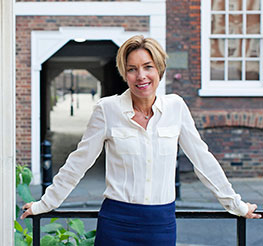Exclusive: Campaigners warn ‘huge injustices’ are taking place and children’s best interests are being ‘obscured’ as figures show 134 per cent rise in parents fighting cases alone.
Article from independent.co.uk
Lawyers and politicians said the increase meant people with little knowledge of the law were having to navigate ‘complex and confusing cases’ alone. The number of parents forced to represent themselves in child custody battles at family courts has more than doubled in six years in the wake of legal aid cuts.
Campaigners have warned “huge injustices” are taking place and children’s best interests are being “obscured”. Government data revealed 23,881 parents who applied to open private law cases for child arrangements in 2017 had no legal representation – up 134 per cent since 2011. Lawyers and politicians said the increase meant people with little knowledge of the law were having to navigate “complex and confusing cases” alone, often leading to prolonged proceedings and heightened anxiety for parents and children.
The figures, obtained through a parliamentary question, show the proportion of applicants going to court unrepresented surged from one in five in 2011 – the year before restrictions to legal aid were introduced – to almost half of all cases in 2017. Overall, including both applicants and respondents, the figure was up 85 per cent, from 29,353 to 54,287.
One father said going into court without a solicitor felt like “walking into the lions’ den”. Matthew, whose surname is not being used to protect the identity of his former partner and children, had to fight for access to his young sons without legal representation after his ex-partner made allegations against him.
The 40-year-old, whose former partner received legal aid due to allegations of domestic abuse which were later proven to be untrue, said: “It felt unfair. They had laid out all these concerns without me being able to defend myself. I didn’t know what I could push for, what I could request. “Unfortunately when you don’t know what you’re doing and you don’t know the law, you’re pushed into that corner. I can’t afford £25,000 plus to get a solicitor. “It’s mad to think that if I went and robbed a bank tomorrow, I’d get legal aid – but I can’t get it for a case about my kids.”
The 2012 Legal Aid, Sentencing and Punishment of Offenders Act (Laspo) abolished legal aid for a swathe of civil disputes, including all private law family cases.
Exceptions are available only when the applicant can supply hard evidence of domestic abuse. There is also an exceptional case funding scheme, but this has become difficult to obtain, with only 954 cases benefiting from the scheme in 2017.
Responding to the new figures, Labour’s shadow justice secretary Richard Burgon said:
“People facing life changing situations such as the loss of access to their children should not have to represent themselves, in what can often be complex and confusing cases. But that is increasingly the result of the Conservatives’ cruel decision to hollow out access to legal aid. It makes a mockery of access to justice and should end.”
Research by the Law Society last year found that the poorest in society were being denied access to justice, leaving them unable to address life-changing legal issues such as housing disrepair and eviction threats.
Lawyers have protested against the cuts to legal aid, with the Criminal Bar Association (CBA) claiming the entire criminal justice system was “in chaos” and that legal aid work was being undermined to save money.
Jenny Beck, who sits on the Law Society’s access to justice committee, said the rise in unrepresented parties was not only causing “huge injustices” in terms of decision-making, but was also more expensive for the government and damaging for the children involved.
“Cases are taking much longer to go through the courts as they are becoming clogged with protractive cases, so a lot more taxpayer money is being spent on court time,” she said. “When hearings go on for longer it creates more anxiety, which does impact the children. The parents stay at loggerheads for longer, there’s that perceived unfairness, and children do feel that.”
Ian Lawrence, general secretary of Napo, a trade union representing probation service workers, said the figures were a “shocking indictment” of the government’s “failure” to assist parents who do not have the means to secure private representation, adding: “The legal aid system is a mess, and is desperately in need of review.”
Penny Scott, chair of the Law Society’s family law committee, said:
“Family law is highly complex and it is incredibly difficult for a people without a lawyer to understand the proceedings of the court and represent themselves effectively.“The child’s best interest can be obscured in the heat of the moment as it shifts to the anger or distress of the parent.”
The Ministry of Justice is currently reviewing the impact of Laspo, which campaigners hope will pave the way for a return of publicly-funded legal aid for family court cases.
A Ministry of Justice spokesperson said:
“Public funding remains available for parents in proceedings where a local authority seeks an order to place a child in care or under its supervision. This applies for mediation in private law cases as well as cases where there is evidence of domestic or child abuse.“Since 2015, we have invested almost £6.5m in support for unrepresented parties – providing practical assistance and information as well as routes to free or more affordable legal advice.“We are also conducting a wide-ranging, evidence-based review of our reforms to legal aid and will publish the results shortly.”

Jenny is an award-winning family lawyer, committed to accessible justice and the rights of the individual. She is an entrepreneurial business leader, successful in creating and running high performing teams.
She is the former Chair of:
Law Society’s Access to Justice Committee
The ABS and New Law Advisory Council
Current Co-chair of the Legal Aid Practitioners Group
Contact Jenny on Jenny.Beck@Beckfitzgerald.co.uk
